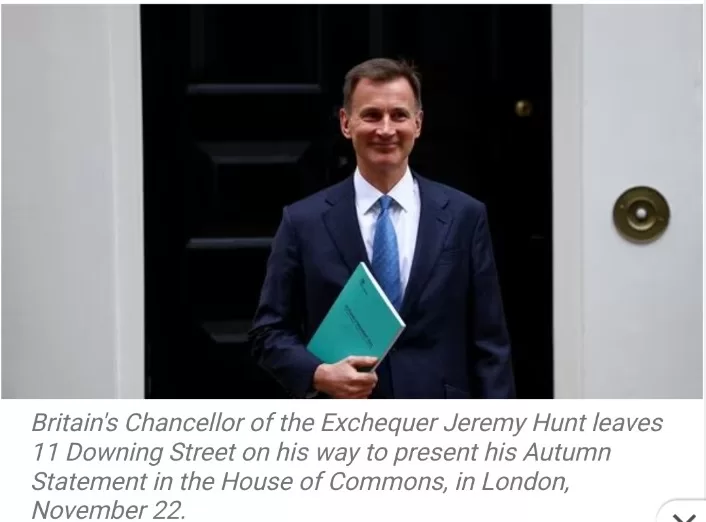In a surprising turn of events, Chancellor of the Exchequer Jeremy Hunt delivered somber news to the House of Commons during his Autumn Statement. The UK’s economic growth forecasts have been downgraded, dealing a blow to Prime Minister Rishi Sunak’s government as they face an anticipated general election next year.
Hunt revealed that the Office for Budget Responsibility now predicts a growth of 0.7% in 2024 and 1.4% in 2025, a downgrade from the previously forecasted 1.8% and 2.5%, respectively. This downgrade sets the stage for a crucial period for both Hunt and Sunak as they attempt to narrow a significant poll gap against the opposition Labour Party.
The Chancellor emphasized a focus on growth, stating, “Our choice is not big government, high spending and high tax because we know that leads to less growth, not more. Instead, we reduce debt, cut taxes and reward work.”
Hunt’s strategy includes extending a 100% tax relief on capital spending to stimulate investment and introducing supply-side reforms such as expediting connections to the electricity grid and encouraging workforce reintegration.
On the contentious issue of spending decisions, Hunt announced an increase in welfare payments aligned with September’s inflation figure, alleviating concerns among some MPs. He also maintained the pensions triple lock, resisting the use of a lower pay figure for the latest uprating.
Addressing the looming issue of debt, Hunt claimed to meet his fiscal rule of decreasing debt as a share of GDP with double the headroom compared to the March budget. However, skepticism exists, with the Resolution Foundation branding the headroom as a “fiscal illusion.”
Hunt’s plans, extending beyond 2024, anticipate tight spending and raise concerns about potential deterioration in public services. This approach suggests that a future government, possibly led by Labour’s Keir Starmer, may need to unwind tax measures to avert adverse outcomes.
Under pressure to announce personal tax cuts, Hunt is expected to reduce national insurance, though the impact on frozen income tax thresholds next April remains uncertain. The government’s optimism stems from a decline in inflation, allowing consideration of tax cuts. However, Hunt’s projection of 2.8% inflation by the end of 2024 contrasts with the OBR’s earlier forecast of 0.5% by the end of next year.
This Autumn Statement gains significance for Sunak following a series of setbacks, including a Supreme Court ruling against a flagship migration plan and growing discord within the Conservative Party. As the government grapples with economic challenges, the outcome of these fiscal measures will undoubtedly shape the political landscape in the coming months.







